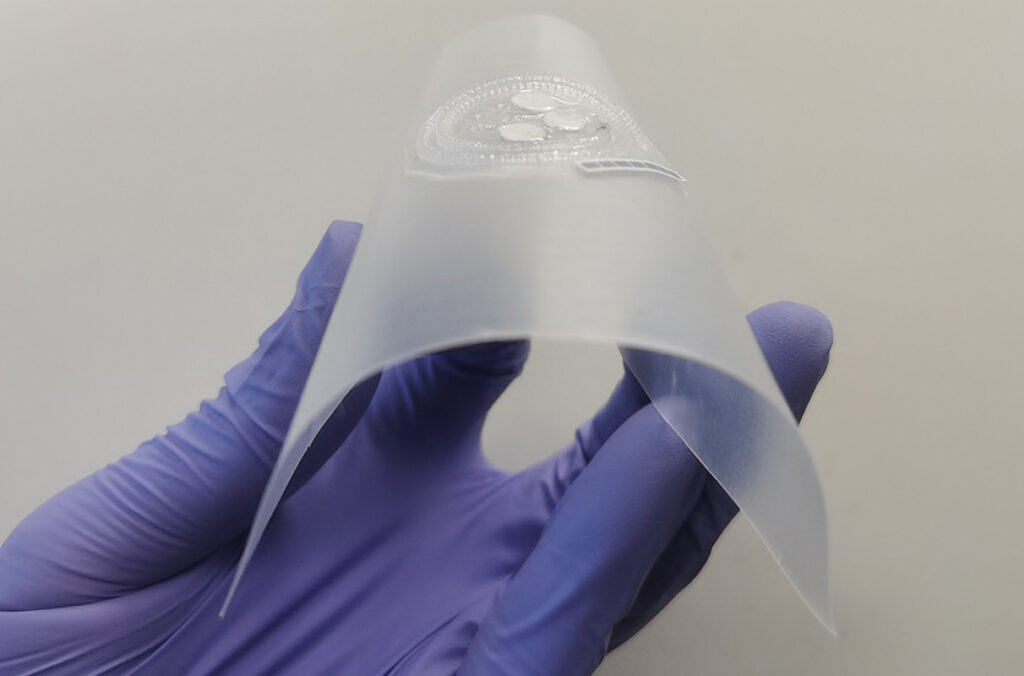Researchers at Washington State University have developed a 3D printed wearable health monitor that measures key biochemicals in sweat during exercise. This device non-invasively tracks health conditions like diabetes, gout, kidney disease, and heart disease by monitoring glucose, lactate, and uric acid levels.
Published in ACS Sensors, the study shows the device accurately measuring biomarkers and sweat rates in volunteers.

“Diabetes is a major problem worldwide,” said Chuchu Chen, the study’s first author, emphasizing the potential of 3D printing in healthcare. The one-step 3D printing process uses a single-atom catalyst and enzymatic reactions to enhance signal detection of these low-level biomarkers.
Sweat, unlike blood, offers a non-invasive method for health monitoring. Uric acid levels in sweat indicate risks for gout, kidney disease, and heart disease, while glucose and lactate levels monitor diabetes and exercise intensity.
Current sweat sensors are complex and require specialized equipment. The new device, using tiny microfluidic channels, avoids contamination issues common with other methods.
The prototype, tested on volunteers, demonstrated accurate and reliable measurements. The researchers aim to improve the design, add more biomarkers, and commercialize the technology, supported by a provisional patent.
The project was funded by the National Science Foundation and the CDC, and WSU’s Office of Commercialization is facilitating the technology’s protection and potential market entry.
Source: news.wsu.edu

